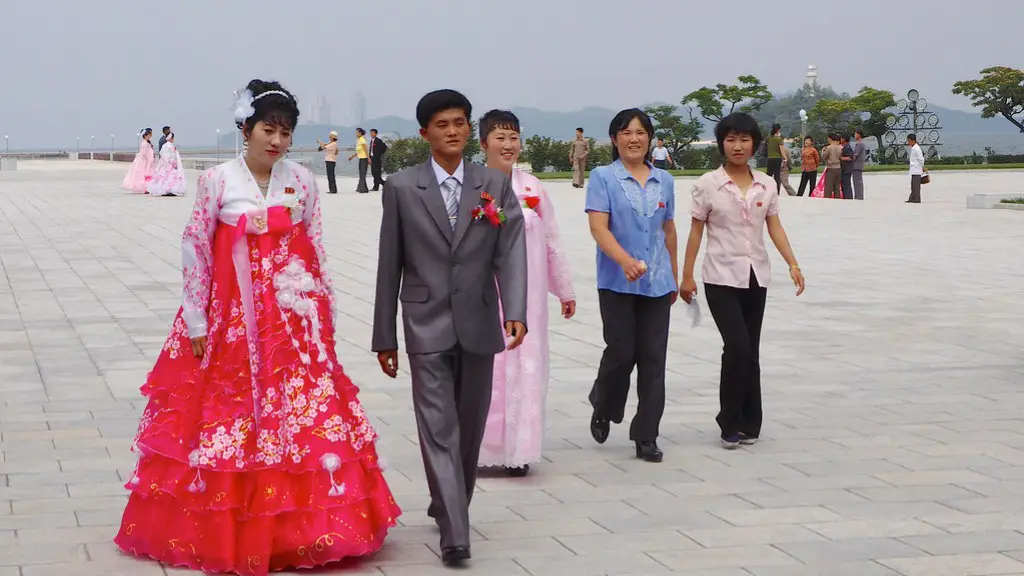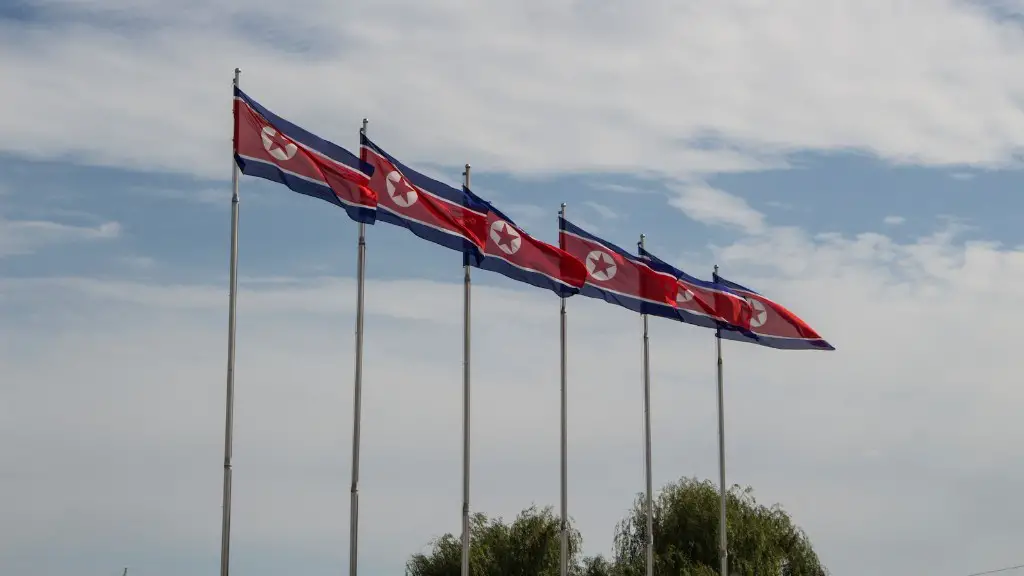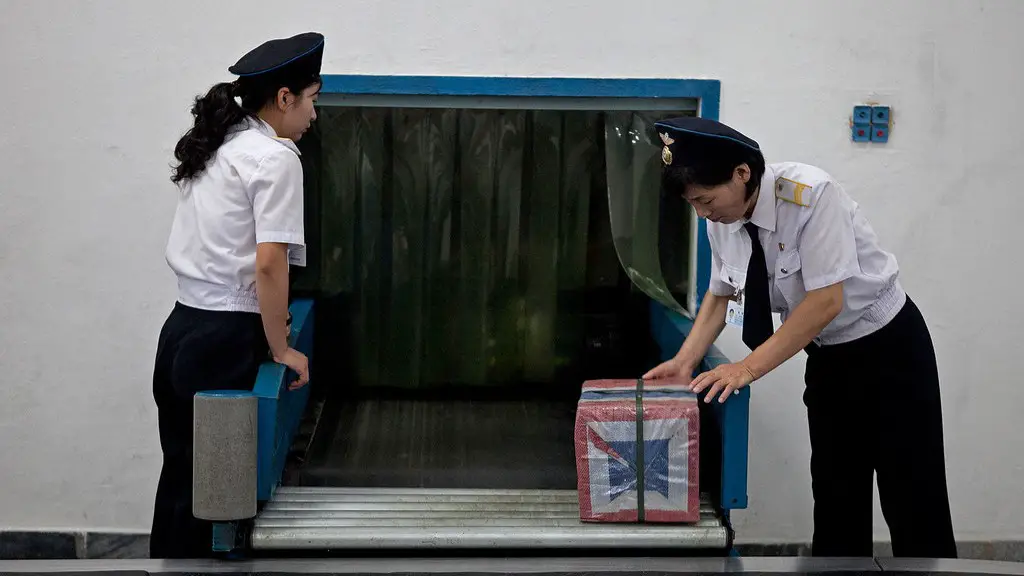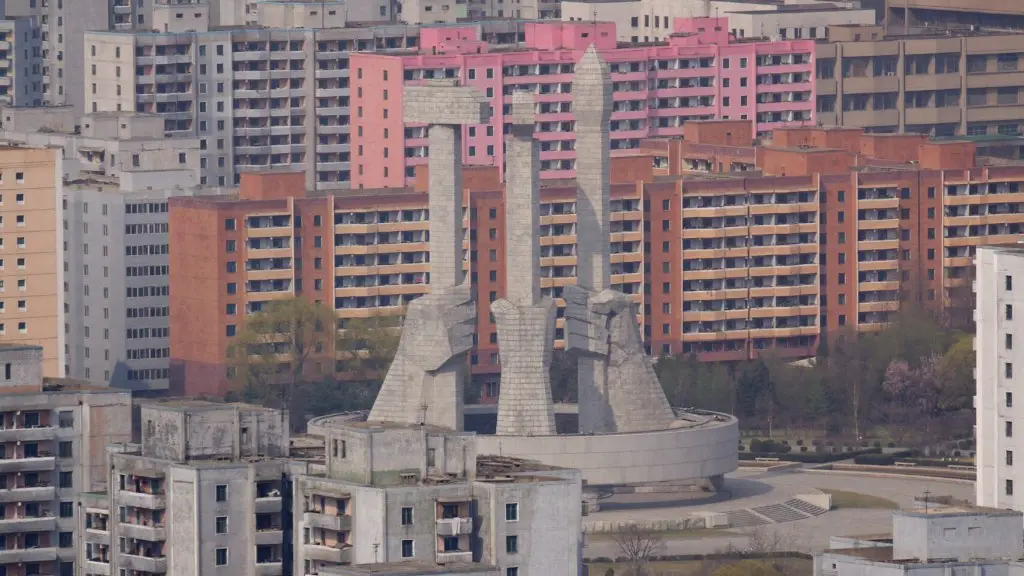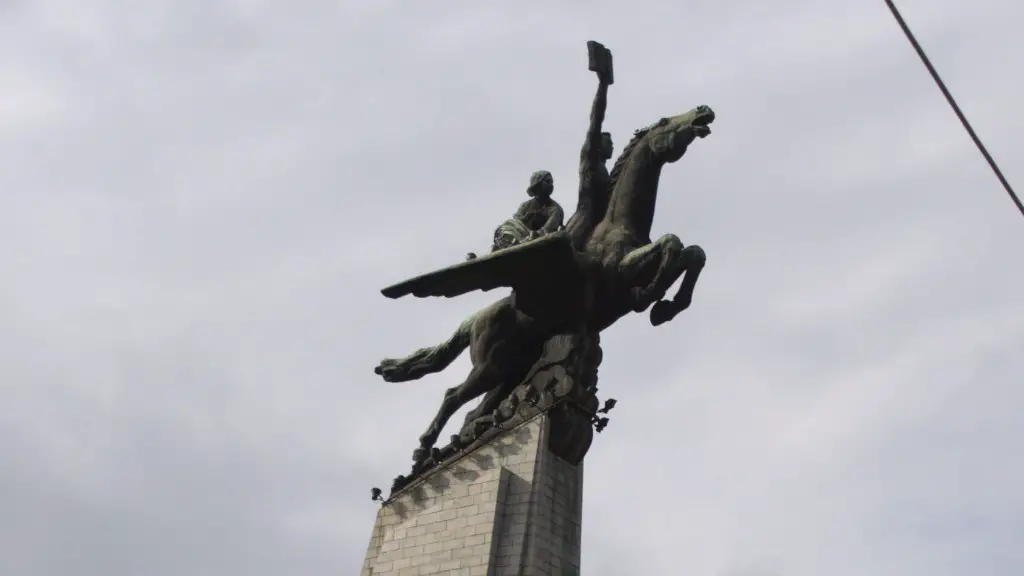North Korea’s nuclear program has been a source of concern for the international community for decades. In recent years, North Korea has made significant progress in its nuclear capabilities, raising fears of a potential nuclear conflict on the Korean Peninsula. Despite international pressure, North Korea has refused to give up its nuclear program and has instead stepped up its nuclear and missile tests. In light of the increasing threat, there is a renewed push to find a diplomatic solution to denuclearize North Korea.
North Korea has been working on its nuclear program for decades, and it is now one of the few countries in the world with nuclear weapons. The process of denuclearizing North Korea will be long and difficult, and it will require the cooperation of the international community.
How does North Korea get nukes?
The Democratic People’s Republic of Korea (DPRK) has extracted plutonium, an atomic bomb fuel, from its Soviet-designed nuclear reactor in Yongbyon, north of Pyongyang. It also runs centrifuges to produce weapons-grade enriched uranium, another bomb fuel. These activities significantly increase the DPRK’s capability to produce nuclear weapons.
The Joint Declaration of the Denuclearization of the Korean Peninsula was an agreed action item between South Korea and North Korea signed on January 20, 1992. The two Koreas committed to denuclearize the peninsula and to not test, produce, or possess nuclear weapons. They also agreed to work together to promote peace and stability in the region. The declaration was a major step forward in the peace process between the two Koreas and helped to ease tensions on the peninsula.
Can you sanction North Korea
The international community has imposed a number of sanctions against North Korea in an effort to dissuade the country from pursuing its nuclear weapons program. These sanctions have been largely unsuccessful, and North Korea has continued its nuclear tests despite the consequences. The most recent round of sanctions was imposed after North Korea’s sixth nuclear test, which took place in September of 2017.
The United States and South Korea have a long history of cooperation, especially during the Cold War. In 1991, the US withdrew its nuclear arsenal from South Korea as part of its efforts to move beyond the Cold War. Since then, no US nuclear weapons have been stationed in the country. The two countries continue to work together on a number of issues, including security and non-proliferation.
Where would a nuclear bomb hit in the US?
The six most likely target cities in the US are New York, Chicago, Houston, Los Angeles, San Francisco, and Washington, DC. These countries will stay prepared to combat any type of nuclear attack shortly. The nuclear impact could destroy the city and this will lead to a disaster.
In 1951, China and the Soviet Union signed a secret agreement in which China provided uranium ores to the Soviet Union in exchange for assistance in nuclear technology. China began developing nuclear weapons in the late 1950s with substantial Soviet assistance.
Who wanted to drop nukes in Korea?
While I don’t agree with the use of nuclear weapons, I do think that Major General Charles L Bolte’s proposal has merit. If we can take out key infrastructure points, it would go a long way to isolating North Korea and making it difficult for them to continue their aggression.
There is no confirmation that this exchange actually took place, but if it did, it would be a major problem. Nuclear weapons technology should not be shared with any country, let alone a volatile one like North Korea. If this information was exchanged, it must be dealt with quickly and appropriately.
Who supplied North Korea with nuclear
Pakistan is an important US ally in the war on terrorism, and it denies that it has assisted in North Korea’s nuclear program. Russia has provided North Korea with nuclear expertise and missile technology in the past, but it is not clear if it is still doing so.
Freedom of movement is something that is not enjoyed by North Korean citizens. They are usually not able to freely travel around the country, let alone travel abroad. Emigration and immigration are both strictly controlled.
Why are US citizens not allowed in North Korea?
North Korea continues to pose a serious risk to US nationals, with arrest and long-term detention a very real possibility. Exercise increased caution if you choose to travel to North Korea, and be aware of the potential for wrongful detention.
You will need a visa for any type of travel to North Korea. If you attempt to enter the country without a valid visa, you may be detained or arrested.
Does Canada have nukes
Canada does not have nuclear, chemical, or biological weapons or relevant delivery systems, and is a member in good standing of all relevant nonproliferation treaties and regimes. This means that Canada is committed to preventing the spread of these weapons and to working towards their elimination.
Although Japan does not possess any WMDs, it is the only non-nuclear weapon state with a full nuclear fuel cycle. Additionally, Japan has advanced WMD-relevant industries, which could potentially be used to develop weapons of mass destruction. While Japan has not expressed an interest in developing WMDs, its possession of nuclear fuel and relevant industries means that it has the potential to do so.
How many nukes does Japan have?
Japan does not have its own nuclear weapons. The Japanese government considered developing them in the past, but decided this would make Japan less secure. Japanese opinion polls consistently express strong public opposition to nuclear weapons. So do their elected representatives.
Ioannis Kokkinakis and his team sought to determine the safest place to be during an atomic bomb explosion by simulating the event in a laboratory. The results of their study, published in Physics of Fluids, showed that the corners of a room are the safest place to be. This is because the corners provide the most support for the walls of the room, which are more likely to collapse during an explosion.
Where is the safest place to live if there is a nuclear war
If you’re looking for a safe place to be in the event of a nuclear war, Maine, Oregon, Northern California, and Western Texas are all good options. These areas lack large urban centers and nuclear power plants, making them less likely targets for a nuclear attack.
These estimates may be based on the fact that these areas are in proximity to nuclear power plants and lack large urban centers, but it is important to remember that no one really knows what would happen in the event of a nuclear war. For example, a nuclear war could cause a nuclear winter, which would make it very difficult for any part of the world to survive.
Conclusion
There is no one-size-fits-all answer to the question of how to denuclearize North Korea, as the approach that needs to be taken will vary depending on the specific circumstances and situation of each case. However, some general principles that could be followed include:
1. Establishing a clear and consistent message that denuclearization is the only acceptable outcome, and that all other options are off the table.
2. Maintaining strong international unity and pressure on North Korea, including through sanctions and other measures.
3. Working to improve inter-Korean relations and create a more positive environment for negotiations, while also making it clear that denuclearization must come first.
4. Pursuing creative and flexible diplomatic solutions that take into account the unique challenges of the North Korea issue, and that can address the security concerns of all relevant parties.
There are a few key steps that must be taken in order to denuclearize North Korea. Firstly, negotiations must be opened up in order to discuss the possibility of denuclearization with the North Korean government. Secondly, if an agreement is reached, a plan must be put in place to ensure that North Korea destroys all of its nuclear weapons and capabilities. Finally, international inspectors must be brought in to verify that the denuclearization process is complete. While these steps may seem daunting, it is important to remember that the alternative is much worse. A nuclear North Korea is a grave threat to international security and must be stopped at all costs.
